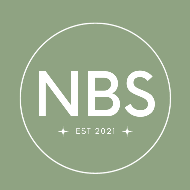04 Dec A Beginner’s Guide to Starting Your Own Recording Studio
In today’s music industry, the demand for recording studios remains as high as ever. Musicians, podcasters, voice-over artists, and other creatives continually seek quality recording spaces to bring their projects to life. If you’re passionate about audio production and dream of owning your recording studio, you’re in the right place. In this blog, we’ll provide a step-by-step guide on how to start a recording studio from scratch.
- Define Your Niche:
Before diving headfirst into the recording studio business, it’s essential to define your niche. Consider what type of clients you want to cater to. Are you more interested in music recording, podcast production, voiceovers, or a combination of these? Identifying your niche will help you tailor your services and equipment accordingly.
- Research and Plan:
Extensive research is the foundation of any successful business. Study your local market to understand the demand for recording studios. Analyze your competition, identify their strengths and weaknesses, and find your unique selling points. Create a detailed business plan that outlines your budget, equipment needs, pricing strategy, and marketing approach.
- Budget and Financing:
Starting a recording studio can be a significant financial investment. You’ll need to secure a budget that covers expenses such as studio space, soundproofing, recording equipment, software, furniture, and marketing. Consider your financing options, which may include personal savings, loans, or seeking investors.
- Find the Right Location:
Choosing the right location for your studio is crucial. Look for a space that is acoustically suitable, easily accessible for your target clients, and offers room for expansion as your business grows. Keep in mind that soundproofing is essential to ensure a quiet recording environment.
- Equip Your Studio:
Investing in quality recording equipment is vital. At a minimum, you’ll need microphones, headphones, audio interfaces, mixing consoles, studio monitors, and software like Pro Tools, Logic Pro, or Adobe Audition. Your choice of equipment will depend on your niche and budget, so make informed decisions.
- Soundproofing and Acoustics:
Achieving optimal sound quality within your studio space is non-negotiable. Proper soundproofing and acoustic treatment will prevent external noise interference and create a controlled recording environment. Consult with experts or professionals in acoustics to ensure your studio’s acoustics meet industry standards.
- Marketing and Networking:
Establishing a strong online presence is key to attracting clients. Create a professional website, set up social media profiles, and invest in online advertising. Attend industry events and network with local musicians, content creators, and other potential clients. Word-of-mouth referrals are often the best form of marketing in this industry.
- Offer Exceptional Service:
Your studio’s success depends on the quality of your services. Deliver top-notch audio production, exceptional customer service, and competitive pricing to build a loyal client base.
- Evolve and Adapt:
The recording industry is dynamic and continually evolving. Stay updated with the latest technology and trends. Be open to feedback, and be ready to adapt your services to meet the changing needs of your clients.
Starting a recording studio is an ambitious endeavor, but with dedication, a clear plan, and a passion for audio production, it can be a highly rewarding venture. Your journey may have its challenges, but the ability to help artists and creators bring their visions to life makes it all worthwhile. So, if you’re ready to turn your passion into a profession, follow these steps, and you’ll be well on your way to running a successful recording studio.


Sorry, the comment form is closed at this time.